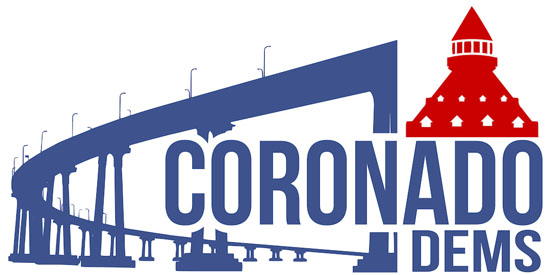It looks like nothing was found at this location.
- Coronado Democratic Club, PO Box 181351, Coronado, CA 92178-1351
- [email protected]
-
Whether you wish to become a member, volunteer, bring an issue to our attention
or simply have a question – Contact us! We want to hear from you! - Please Explore All the Informative Pages of Our Website
